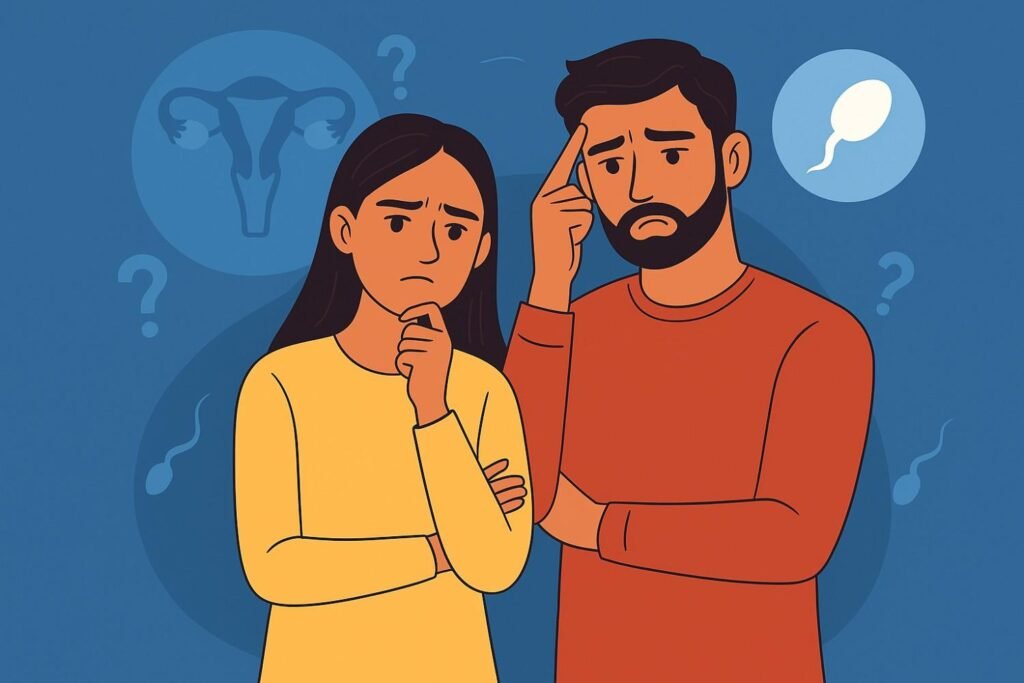Infertility is a growing concern for many couples who are trying to conceive. Medically, it is defined as the inability to achieve pregnancy after 12 months of regular, unprotected intercourse. While it can feel overwhelming, infertility is not uncommon — and most importantly, it is treatable.
At Nex IVF and Fertility Centre, Patna, we believe that awareness is the first step to action. In this blog, we break down the common causes of infertility and the factors that may be affecting your chances of conception.

🔍 Causes of Infertility in Women
1. Ovulation Disorders
Irregular or absent ovulation is one of the most common causes of female infertility. Conditions like Polycystic Ovary Syndrome (PCOS), thyroid imbalance, or hormonal disorders can interfere with the monthly release of eggs.
2. Uterine or Cervical Issues
Structural abnormalities such as uterine fibroids, polyps, or cervical stenosis can hinder the implantation of a fertilized egg or block sperm movement.
3. Fallopian Tube Damage or Blockage
Infections like pelvic inflammatory disease (PID) or conditions like endometriosis can damage or block the fallopian tubes, preventing the egg and sperm from meeting.
4. Age and Egg Quality
As women age, both the quantity and quality of eggs naturally decline. After age 35, fertility drops significantly, and the chances of chromosomal abnormalities rise.
🔍 Causes of Infertility in Men
1. Sperm Abnormalities
Low sperm count, poor motility (movement), or abnormal sperm shape can reduce the chances of successful fertilization.
2. Varicocele
This condition involves the swelling of veins within the scrotum and can negatively impact sperm quality and production.
3. Sexual Function Disorders
Erectile dysfunction, premature ejaculation, or blockages in the reproductive tract can all affect male fertility.
4. Lifestyle Habits
Smoking, alcohol, drug use, obesity, and even tight clothing can reduce sperm production and hormonal balance.
🔍 Shared or Combined Factors
1. Medical Conditions
Diseases such as diabetes, thyroid disorders, or autoimmune conditions can disrupt hormonal or reproductive functions in both men and women.
2. Environmental Exposure
Prolonged exposure to chemicals, radiation, or pesticides may affect fertility levels over time.
3. Stress and Mental Health
Chronic stress can influence hormonal balance, ovulation, and sexual function — often without you even realizing it.
🩺 When to Seek Help
If you’ve been trying to conceive for a year (or six months if you’re over 35), it’s time to consult a fertility expert. At Nex IVF Patna, our team offers:
✔️ Comprehensive male and female fertility evaluations
✔️ Hormonal tests, ultrasound scans, and semen analysis
✔️ Personalized treatment plans including IVF, IUI, ICSI, and lifestyle management
✔️ Emotional support and step-by-step guidance throughout your journey
🌈 Final Thoughts
You are not alone.
With the right diagnosis and care, your dream of parenthood is still very much possible.